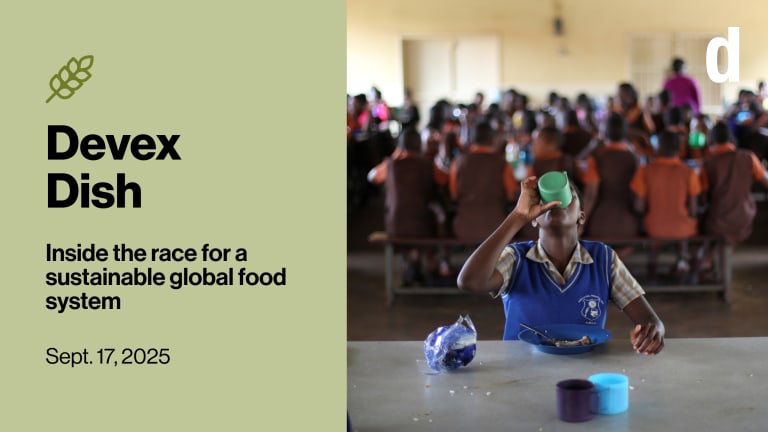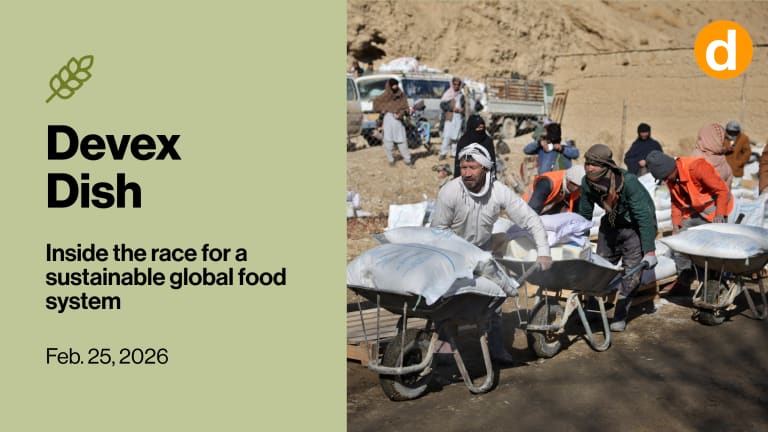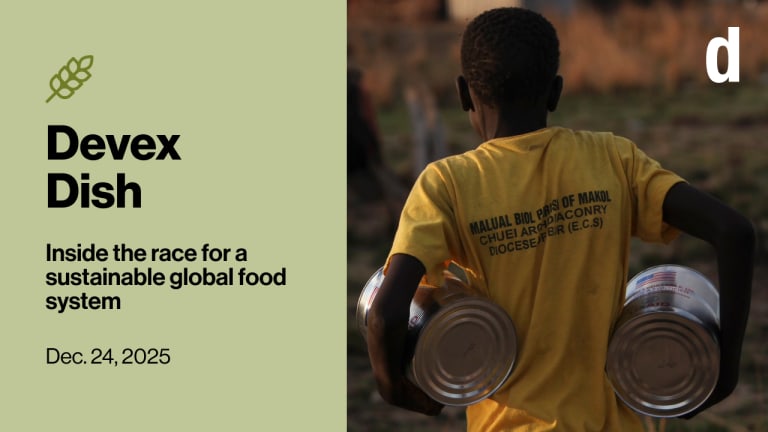Yemen finds itself in the midst of a deteriorating humanitarian crisis, its people having to deal with rising poverty, a breakdown of social services, diminishing resources, internal conflict and political instability.
According to Bishow Parajuli, World Food Program’s country director in Yemen, food and fuel prices — as well as long-term food security — are also significant concerns. “Forty years ago, Yemen was self-sufficient in food, now it imports 90 percent of it. I wouldn’t say that the country can return to self-sufficiency any time soon, but there is a chance to improve,” Parajuli said.
Devex spoke with Parajuli on the sidelines of his visit to EU institutions to discuss funding for lifesaving support in Yemen. In 2013, the European Commission's humanitarian aid and civil protection department, known as ECHO, was the fourth-largest donor to WFP Yemen, providing some $10 million in funding. And in July, ECHO announced a further donation of $8 million to provide food assistance to displaced families and food distribution for the most vulnerable and poorest Yemenis.
Search for articles
Most Read
- 1
- 2
- 3
- 4
- 5








